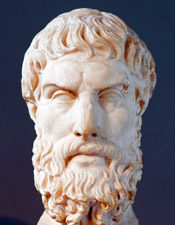The Teachings of Epicurus
, authored by Mattes, M. J. (contact-email)
The Hellenistic philosopher Epicurus is often misunderstood. A typical high school history textbook might only mention him briefly, inaccurately equating Epicureanism with hedonism. Epicurus used rational thought to address philosophical queries, believing in neither an afterlife nor divine intervention in human affairs. He viewed nature as mechanistically governed, dismissing miracles. His philosophy advocated a simple, wise life, minimising pain and respecting others.
Epicurus established a school in Athens which lasted approximately 800 years and significantly influenced both Greek and Roman societies. His views, however, clashed with Christianity, leading to the closure of his and other Greek philosophical schools by Emperor Justinian in 529. Despite persecution by Christians, Epicurean ideas covertly influenced the Renaissance and Enlightenment. This edition aims to rectify historical oversights and misconceptions, highlighting atheism’s ancient roots and the persistent, albeit secretive, survival of Epicureanism despite Christian opposition.

Mattes, M. J.
Support Open-Access:
Your contribution keeps our classical translations available to all. Every dollar helps support classics education and funds the expansion of our catalogue. Value what we do? Donate now.
File Downloads:
© Copyright, All Rights Reserved. This work may be freely reproduced, stored and transmitted, electronically or otherwise, for any non-commercial purpose. Conditions and Exceptions apply.